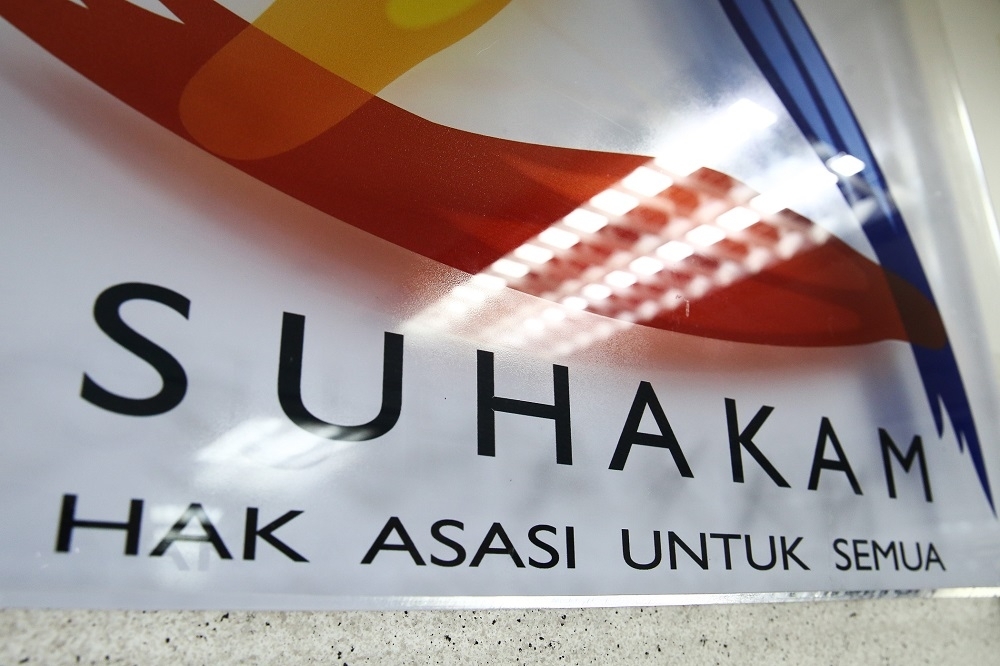
Suhakam calls for abolition of corporal punishment following Pokok Sena inmate’s death

In a statement today, Suhakam stressed the importance of comprehensive reform in Malaysia’s criminal justice system, advocating for a shift towards rehabilitative approaches that uphold human dignity. — Picture by Yusof Mat Isa
Tuesday, 22 Oct 2024 1:11 PM MYT
KUALA LUMPUR, Oct 22 — The Human Rights Commission of Malaysia (Suhakam) has expressed grave concern following the recent death of an inmate at Pokok Sena Prison, allegedly due to corporal punishment by whipping.
In a statement released today, Suhakam reiterated its strong opposition to all forms of corporal punishment, asserting that such practices violate fundamental human rights and human dignity.
“Suhakam unequivocally opposes all forms of corporal punishment, including whipping,” the commission stated, emphasising that the physical and psychological harm inflicted contradicts international human rights standards.
In light of the incident at Pokok Sena Prison, the commission called for the immediate abolition of corporal punishment in all forms, including those enshrined in the Penal Code, the Criminal Procedure Code, and the Prisons Act.
It also highlighted the need to outlaw corporal punishment in schools to protect children from violence.
Citing Articles 5 and 7 of the Universal Declaration of Human Rights and the International Covenant on Civil and Political Rights, Suhakam noted that these documents assert that no one should be subjected to torture or cruel, inhuman, or degrading punishment.
The commission pointed out that corporal punishment falls under the definition of torture as outlined in the United Nations Convention Against Torture and Other Cruel, Inhuman, or Degrading Treatment or Punishment (CAT), which Malaysia has yet to ratify.
Suhakam urged the government to join other Asean nations, such as Indonesia and the Philippines, that have already acceded to CAT, demonstrating a commitment to abolish torture and inhumane treatment.
The commission also stressed the importance of comprehensive reform in Malaysia’s criminal justice system, advocating for a shift towards rehabilitative approaches that uphold human dignity.
“Measures that emphasise justice, accountability, and public safety, without resorting to violence, are essential to creating a just society,” the commission concluded, calling for a transparent investigation into the inmate’s death and accountability for those responsible.
Tuesday, 22 Oct 2024 1:11 PM MYT
KUALA LUMPUR, Oct 22 — The Human Rights Commission of Malaysia (Suhakam) has expressed grave concern following the recent death of an inmate at Pokok Sena Prison, allegedly due to corporal punishment by whipping.
In a statement released today, Suhakam reiterated its strong opposition to all forms of corporal punishment, asserting that such practices violate fundamental human rights and human dignity.
“Suhakam unequivocally opposes all forms of corporal punishment, including whipping,” the commission stated, emphasising that the physical and psychological harm inflicted contradicts international human rights standards.
In light of the incident at Pokok Sena Prison, the commission called for the immediate abolition of corporal punishment in all forms, including those enshrined in the Penal Code, the Criminal Procedure Code, and the Prisons Act.
It also highlighted the need to outlaw corporal punishment in schools to protect children from violence.
Citing Articles 5 and 7 of the Universal Declaration of Human Rights and the International Covenant on Civil and Political Rights, Suhakam noted that these documents assert that no one should be subjected to torture or cruel, inhuman, or degrading punishment.
The commission pointed out that corporal punishment falls under the definition of torture as outlined in the United Nations Convention Against Torture and Other Cruel, Inhuman, or Degrading Treatment or Punishment (CAT), which Malaysia has yet to ratify.
Suhakam urged the government to join other Asean nations, such as Indonesia and the Philippines, that have already acceded to CAT, demonstrating a commitment to abolish torture and inhumane treatment.
The commission also stressed the importance of comprehensive reform in Malaysia’s criminal justice system, advocating for a shift towards rehabilitative approaches that uphold human dignity.
“Measures that emphasise justice, accountability, and public safety, without resorting to violence, are essential to creating a just society,” the commission concluded, calling for a transparent investigation into the inmate’s death and accountability for those responsible.
***
kt comments:
Whipping has been a colonial type of punishment, intended by the White Sahib for colonial slaves, serfs, lesser beings to convince those lower class group to stay in line with superiors' orders. Why have we retain such vicious violent form of punishment when the White Bwana has abolished the same in his homeland?
No comments:
Post a Comment